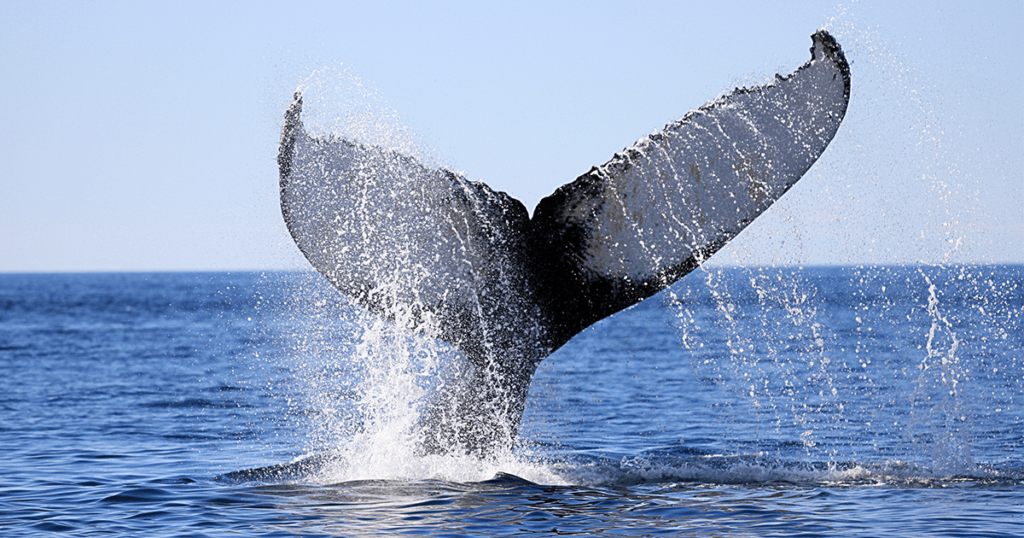
Ahab’s Rolling Sea: A Natural History of Moby-Dick by Richard J. King; University of Chicago Press, 464 pp., $30
In September 1891, retired District Inspector No. 75 for the Port of New York died at home on East 26th Street. Literati shrugged. Herman Melville, once known as “the man who lived with cannibals,” was an antique footnote from the age of sail. His Pacific swashbucklers, Typee and Omoo, were long out of print, and his meandering seaborne epic Moby-Dick sank on publication in 1851, taking his writing career with it.
But the 1919 centenary of his birth inspired a Melville revival, then a Melville industry. Modernist critics revisited the Pequod’s bleak and bloody voyage; scholars soon recovered one magnificent lost novella (Billy Budd, stashed for decades in a tin breadbox) and recharted Melville’s daring use of race and sexuality, his autodidact’s yen for weird fact, his gallery of American bullies, madmen, and con artists, his profound theological anxieties. (Both Darwin and Melville foraged in the Galapagos on their youthful Pacific voyages; one perceived a vivid laboratory for evolution, the other, a grotesque and sterile hellscape.)
Since most Melville criticism occurs safely in drydock, his ocean life has long deserved a responsible re-examination. Richard J. King gives us natural history done Melville-style, looking over a ship’s rail, and this ingenious focus neatly weds field science and literary history, yielding a study that is fresh, provocative, and welcome. Like Melville, King is both sailor and philosopher; he has traveled the North Atlantic and Pacific Oceans for decades on tall ships out of Woods Hole, and in 2007, took a 28-foot sloop alone from Maine to Portugal (he was, he notes, trying for Scotland). King’s previous books consider the natural and cultural histories of lobsters and cormorants, while his next project will examine Audubon at sea, and together they promise an impassioned quartet of meditations on Moby-Dick’s lost realm.
For lost it is. To King, the novel is encapsulated in “a single, spiked club of a sentence” deep in a passage on zooplankton, the tiny organism on which all else depends. An overconfident humanity, Melville says, “has lost that sense of the full awfulness of the sea which aboriginally belongs to it.” King seizes on this doubled vision to argue that that Moby-Dick can be read as a prophecy of Anthropocene planetcide. Thanks to icecap and glacier melt, he tells us, the Pacific has risen at least eight inches since Melville’s day, while atmospheric carbon dioxide has increased by over 70 percent. Our species has “altered the entire chemistry and temperature of the ocean itself—a seemingly impossible conceit … slowly killing ourselves as we drag down entire ecosystems of life along with us.” We are all Ahabs, and King makes clear that Melville’s merciless portrait of extinction for global profit could not be more timely.
Ahab’s Rolling Sea is a lively guide to the oceans that Melville and his characters loved and feared. The book is occasionally a choppy read, but always a pleasure to browse. King announces his core belief early on, and sticks to it: “for me Moby-Dick is first and foremost a novel about the living, breathing, awe-inspiring global ocean and its inhabitants.” By focusing on background, not foreground, he constructs a sturdy portal to 19th-century perceptions and conceptions of marine biology. King’s style tends to be informal, postmodern, associational; an apt companion read might be D. Graham Burnett’s tightly woven The Sounding of the Whale (2012), which chronicles the labor of 20th-century whale scientists and the rise of modern oceanography.
King’s title links the mysteries of artistic and natural creation, reminding us that literature can spring from deeply understood facts. Ahab’s torment is fueled by his inability to read the seas with sympathy, or appreciate the elaborate whale-society visible from his own deck; he loathes the ecosystem he condemned himself to roam. Ishmael, the survivor-scholar, on the other hand, notices everything, and King examines it all with brio: phosphorescence and giant squid, typhoons and ambergris, sky-hawks and seals.
As a son of Illinois, I never tasted salt water until age 22, on a Spanish beach, but in teaching Moby-Dick for 50 years, the passage I most return to is its vision of life as “warp and woof: calms crossed by storms, a storm for every calm,” as we endlessly move from doubt to skepticism to disbelief in search of an eternal If.
Undergraduates tolerate my affection for the long view, but often flinch from Melville’s relentlessly descriptive “cetological” chapters, packed with the minutia of whaling down the ages. King, to his credit, revels in these fever dreams of “a poor devil” of a Sub-Sub-Librarian, using them to elucidate Melville’s quest to harvest every research source, embrace or defy contemporary theories of biology, and champion the sailor’s hard-won knowledge of animal behavior. Happily, King gives full play to modern connections, particularly how cetology buttresses evolution. He persuasively traces, as well, the sluggish evolution of our relations with the watery part of the world, since to King, Moby-Dick challenges whaling on moral, ethical, medical, and religious grounds, a debate still unsettled 170 years on.
In that span, the white whale’s fans have ranged from D. H. Lawrence, Jackson Pollock, Bob Dylan, and Ralph Ellison to Led Zeppelin and Laurie Anderson. He (or possibly she) even has a Twitter account. Yet this greatest of American revenge tragedies still swims just out of reach, now breaching, now sounding: “the great Leviathan,” as Ishmael wryly notes, “that one creature in the world which must remain unpainted to the last.”
Does nature exist to be exploited, or to be understood? As the Mont Blanc glacier melts, the Pacific Trash Vortex swells, the Great Barrier Reef withers, and the Gulf Stream falters, the question may have come too late. But King navigates it with genuine expertise, deftly balancing fact and feeling, even as his forays into Melville’s blue-water world mostly show us how to say good-bye.

